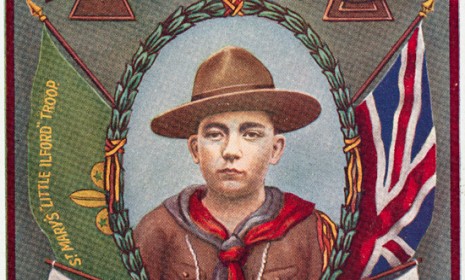Did the Boy Scouts cover up 20 years of sexual abuse?
A Los Angeles Times investigation of once-confidential files suggests that officials failed to tell police about hundreds of child abuse accusations

A free daily email with the biggest news stories of the day – and the best features from TheWeek.com
You are now subscribed
Your newsletter sign-up was successful
In a stinging report, the Los Angeles Times charges that the Boy Scouts of America concealed the crimes of hundreds of child molesters in its ranks from 1970 to 1991. Boy Scouts spokesman Deron Smith argues that focusing on a relatively small number of decades-old cases, when five million boys participate in the Boy Scouts every year, distorts the organization's record, and notes that the Scouts now require members "to report even suspicion of abuse directly to local law enforcement." How extensive was the alleged cover-up, and what, if anything, should be done about it now? Here, a brief guide:
What did the Times investigation reveal?
Reporters looked at two decades of the Boy Scouts' "perversion files," a blacklist the Scouts has used since 1919 to keep out alleged molesters. The Times reviewed 1,600 once-confidential files from 1970 to 1991 that were released in a court case. In most instances, the Scouts learned about abuse allegations from authorities, but in more than 500 cases, it was the Scouts that got the information first — from boys, parents, anonymous tips, or the organization's own staff or volunteers. In 400 of those cases, there was no indication that the organization notified police. The Times found that in about 100 cases, Boy Scout officials went out of their way to conceal reports of abuse.
The Week
Escape your echo chamber. Get the facts behind the news, plus analysis from multiple perspectives.

Sign up for The Week's Free Newsletters
From our morning news briefing to a weekly Good News Newsletter, get the best of The Week delivered directly to your inbox.
From our morning news briefing to a weekly Good News Newsletter, get the best of The Week delivered directly to your inbox.
Are there any specific examples?
Many. In one 1982 case, for instance, a Michigan Boy Scout camp director said his bosses, learning of an abuse charge, told him to "keep it quiet" to protect the reputations of the Scouts and the staff member accused of the crime. In a 1987 case in Milwaukee, local Scout leaders got the help of an influential board leader, a newspaper publisher, to keep the news quiet. In another case, 50-year Scouting veteran Arthur W. Humphries was hailed as a model leader by local Scouting officials for years after a Scout came forward and accused him of repeated acts of abuse. The accolades kept coming until police got a tip and arrested Humphries in 1984. He was convicted of abusing 20 Boy Scouts.
How could so many cases have gone unreported?
Many of the alleged abusers who wound up on the blacklist were allowed to leave quietly, citing bogus reasons for their departure. The excuses included everything from business demands to "chronic brain dysfunction" to duties at a Shakespeare festival. A form letter sent to those being dismissed over abuse allegations stated flatly: "We are making no accusations and will not release this information to anyone, so our action in no way will affect your standing in the community."
A free daily email with the biggest news stories of the day – and the best features from TheWeek.com
Will any change come from these revelations?
In an open letter on Monday, Boy Scouts chief Wayne Brock told parents that the organization had already implemented a host of new safety procedures. It now does criminal background checks and provides training to help Scouting participants recognize, resist, and report abuse. It also has a "two-deep leadership policy," requiring two adults at all activities and forbidding any Scout from being alone with a leader. "The Boy Scouts of America believes that one instance of abuse is far too many," Scout spokesman Deron Smith said. But David Clohessy, director of the Survivors Network of those Abused by Priests, says the Scouts have a duty to go through the files and get rid of anyone who faced a credible abuse claim, or helped cover one up. "It's not enough to say 'we're doing better these days,' " Clohessy said. "Scout officials deceived parents, police, and the public about child molesters in the past. How can we believe them when they claim now that they've stopped?"
Read the entire article at the Los Angeles Times.
Sources: CNN, Los Angeles Times, Salon, USA Today